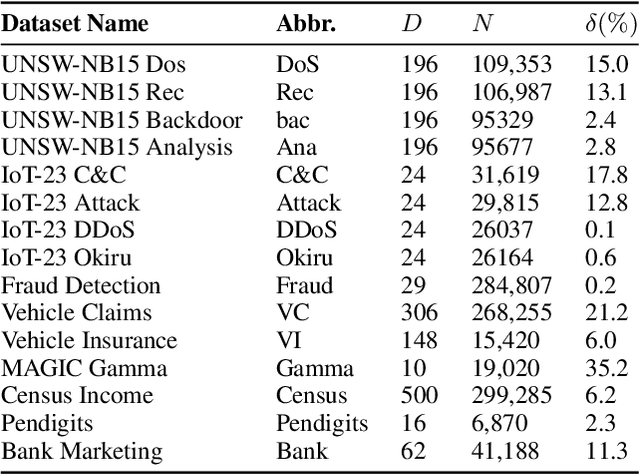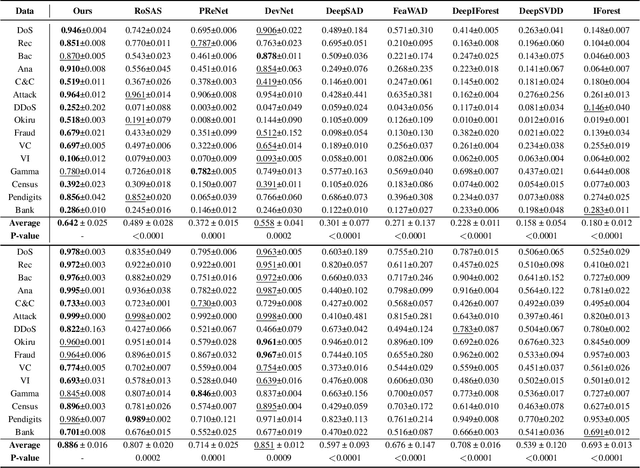Boyuan Ren
Reconstruction-based Multi-Normal Prototypes Learning for Weakly Supervised Anomaly Detection
Aug 23, 2024



Abstract:Anomaly detection is a crucial task in various domains. Most of the existing methods assume the normal sample data clusters around a single central prototype while the real data may consist of multiple categories or subgroups. In addition, existing methods always assume all unlabeled data are normal while they inevitably contain some anomalous samples. To address these issues, we propose a reconstruction-based multi-normal prototypes learning framework that leverages limited labeled anomalies in conjunction with abundant unlabeled data for anomaly detection. Specifically, we assume the normal sample data may satisfy multi-modal distribution, and utilize deep embedding clustering and contrastive learning to learn multiple normal prototypes to represent it. Additionally, we estimate the likelihood of each unlabeled sample being normal based on the multi-normal prototypes, guiding the training process to mitigate the impact of contaminated anomalies in the unlabeled data. Extensive experiments on various datasets demonstrate the superior performance of our method compared to state-of-the-art techniques.
EEML: Ensemble Embedded Meta-learning
Jun 18, 2022



Abstract:To accelerate learning process with few samples, meta-learning resorts to prior knowledge from previous tasks. However, the inconsistent task distribution and heterogeneity is hard to be handled through a global sharing model initialization. In this paper, based on gradient-based meta-learning, we propose an ensemble embedded meta-learning algorithm (EEML) that explicitly utilizes multi-model-ensemble to organize prior knowledge into diverse specific experts. We rely on a task embedding cluster mechanism to deliver diverse tasks to matching experts in training process and instruct how experts collaborate in test phase. As a result, the multi experts can focus on their own area of expertise and cooperate in upcoming task to solve the task heterogeneity. The experimental results show that the proposed method outperforms recent state-of-the-arts easily in few-shot learning problem, which validates the importance of differentiation and cooperation.
 Add to Chrome
Add to Chrome Add to Firefox
Add to Firefox Add to Edge
Add to Edge